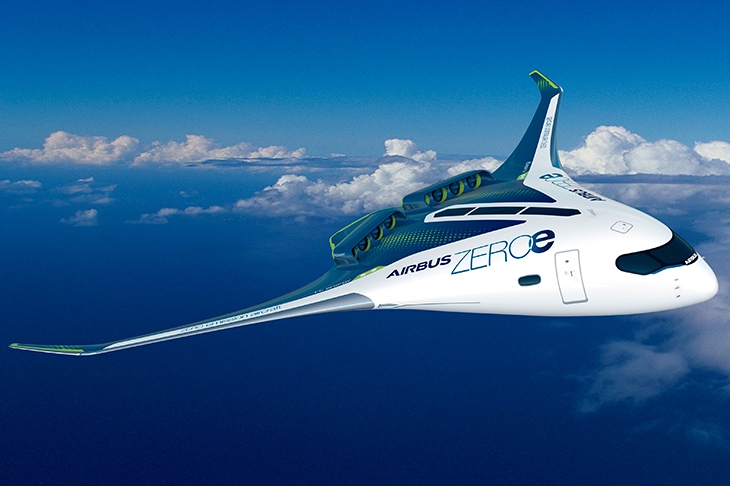What advice can I offer Alok Sharma, who took a pasting in the weekend press for his lacklustre performance as Secretary of State for Business, Energy and Industrial Strategy? While Rishi Sunak knocks up as many runs as he can on a difficult wicket with his job support scheme and VAT deferrals, Sharma is the ‘dead bat’ (in one business chief’s phrase) at the other end — accused of offering no Brexit clarity, not much personal energy and no strategy at all.
In defence of this former City accountant, we might say that his rag-bag department, operating under many different names since 1979, has rarely been regarded as an engine of British enterprise. Among 30 secretaries of state, arguably only David Young, Michael Heseltine, Peter Mandelson and Vince Cable made much impact. In truth there’s little Sharma could do now that the Treasury isn’t already doing, beyond parroting Downing Street’s line and hoping loyalty will win him a sideways move in the next reshuffle.
He’ll certainly want to get out before scandal erupts around the government’s decision to invest £400 million in a near-bankrupt satellite business called OneWeb. Aiming to boost UK broadband and navigational capability via a constellation of mini-satellites in ‘low-earth orbit’, this futuristic venture could be a brilliant gambit to leapfrog the EU and outwit the Chinese — or a mad waste of taxpayers’ money. Either way it was Sharma, reportedly under orders from Dominic Cummings, who overruled civil servants to force the deal through.
While trouble brews on that front, Sharma has a second job as president of the Cop26 United Nations climate change conference — scheduled for November 2021 in Glasgow — which David Cameron and William Hague turned down for fear that Trump would wreck it. But if Biden wins and the event becomes a post-pandemic global jamboree, it could (like the London Olympics) be the making of anyone associated with it. If I were Sharma, I’d cling to that one but beg to be released from BEIS.
Blue-sky success
Another futuristic idea made news this week, but in a much more positive sense. A UK-Californian start-up called ZeroAvia achieved the world’s first commercial-grade, all-hydrogen-powered flight — with an adapted Piper Malibu six-seater which circled Cranfield Airport in Bedfordshire at 1,000 feet, emitting nothing but water and heat. Meanwhile, Airbus unveiled a set of hydrogen-fuelled, zero-emission concept aircraft that it claims could be carrying up to 200 passengers on short-haul and transcontinental flights by 2035.
There are huge issues of airport infrastructure and fuel storage to be overcome, not to mention cost, but hydrogen — plus electricity for smaller aircraft — is the ‘clean tech’ the aviation industry needs for salvation beyond the pandemic shutdown. Residents under London’s flightpaths will also be glad to know that, according to one expert report, ‘it’s incredibly quiet’.
Jackpot winner
A £2.9 billion bid by Caesars Entertainment of Reno, Nevada, for William Hill, the very British bookmaker, brings a welcome touch of comedy to the corporate scene. I’m picturing limos full of casino bosses cruising desolated provincial high streets to inspect their new chain of betting shops. Caesars Palace glitz it ain’t, but at least the UK can claim to be a world leader in all forms of sports betting, including online — and an already fast-growing US joint venture between the two companies in that field is what makes Hill an attractive target.
It seems that whatever we lead in, sooner or later we sell to foreign investors. But with a rival bid in play from Apollo, a US private equity firm, the deal should at least deliver a jackpot for Hill shareholders. And let’s remember that this business has changed hands half a dozen times since its eponymous founder set up shop in Jermyn Street in 1934. That included a decade as part of Brent Walker, the debt-laden 1980s conglomerate assembled by ex-boxer George Walker, who tried to rescue his own fortunes after its collapse by opening betting shops in Moscow offering dog racing from British tracks by satellite. Walker once told me how he taught Russian punters to shout ‘Go on, my son!’ to create the right ambience. The sharp-suited men from Reno will have to learn to do the same.
Let’s eat
Even before the 10 p.m. curfew for all pubs and restaurants, hospitality trade associations were warning that almost a quarter of members expect their businesses to fail by the end of the year and that 675,000 jobs will be lost by February. Given Public Health England figures for mid–September indicating that only 5 per cent of recent Covid outbreaks had been traced to hospitality settings — mostly, I’d guess, crowded boozers rather than well-spaced bistros — the curfew is evidently designed to distract from the infection surge in colleges and care homes. Not even pretending to be ‘led by the science’ as it fuels post-curfew partying elsewhere, it’s particularly harsh on struggling restaurateurs.
So let’s support them and keep ourselves sane by continuing to eat out while we can. This week I enjoyed bouillabaisse at Pierre Victoire in Oxford, while readers sent tips from as far afield as the Lemongarden on the Croatian island of Brac and Jean-Luc Tartarin’s rosetted restaurant in Le Havre. The latter brought to mind a column by Bernard Levin from long ago in which he recalled ‘a place in France about which I have forgotten everything except that I ate a lobster for lunch there, and then feeling that if the world came to an end in the course of the afternoon it would be a pity if I had left it at that, had another lobster, and then, finding that my fear about the possible ending of the world had still not left me, had still another’. That’s as good a way as any to resist the encircling autumn gloom.







Comments